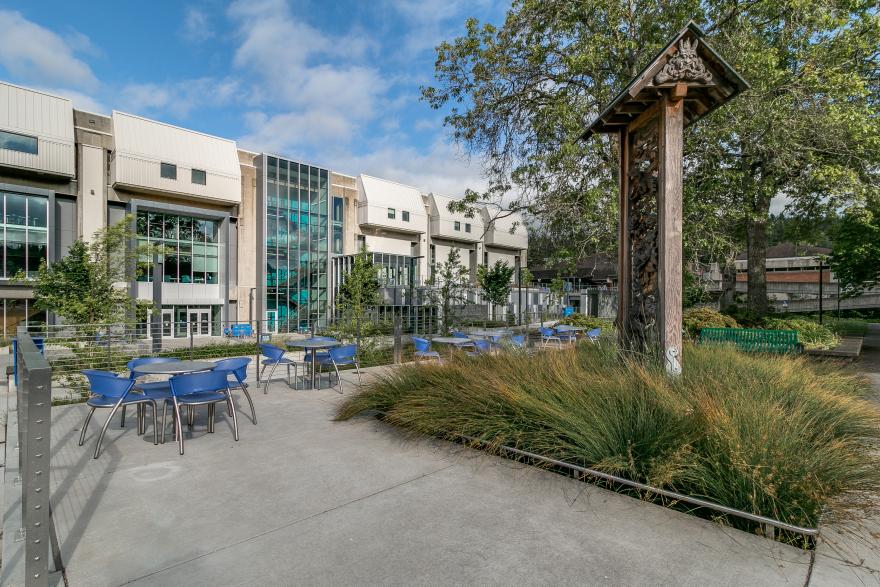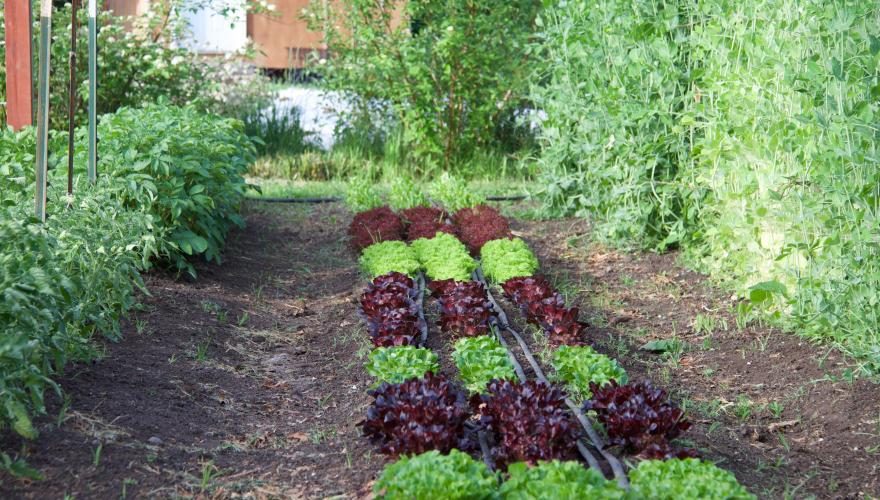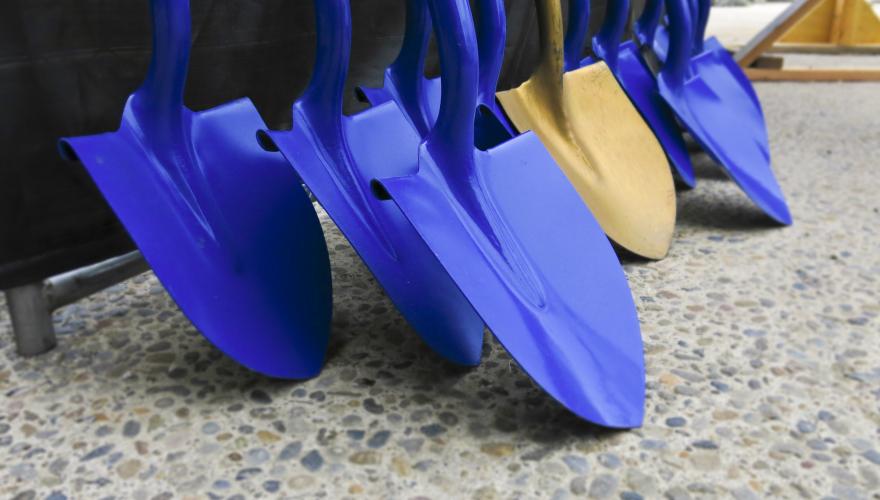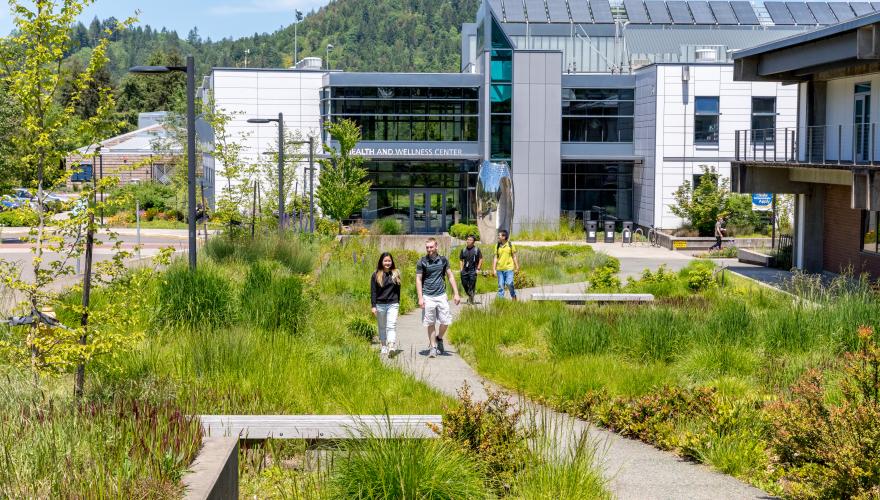Water conservation and watershed protection are critical to all life. Lane incorporates the principles of water conservation and protection into our operational and educational practices, making the campus a learning laboratory for our students.
Take Back the Tap
"Taking back the tap" means reclaiming a more economical, ecological, equitable, and healthy way to drink water. Drinking bottled water is bad for your pocket book, bad for the planet, and sometimes bad for people too. Due to advocacy by the Sustainability Committee, student groups and others, Lane has "Taken Back the Tap" and stopped selling bottled water at the cafeteria, bookstore and in vending machines.
Student Projects
Students studying sustainability at lane have done projects to help reduce water use at Lane. Some of their accomplishments include:
- Retrofitting 88% of old bathroom faucets that used 1.0 to 2.2 gallons of water per minute with aerators that use 0.5 gallons per minute. These retrofits are saving the college 1,107,000 gallons of water and $2945 per year.
- Retrofitting PE locker room shower heads from a 2.5 gallon per minute flow rate to 1.5 gallons per minute.
- Creating signs for PE locker room shower area encouraging people to take shorter showers and save water.
- Conducting research and making proposals that have enabled the college to purchase dual flush and ultra-low flow toilets.
- Creating a Water Conservation Floor Plan book which lists all water using fixtures at Lane, flow rates for the fixtures, whether they have been retrofit to save water, and how much water they are saving.
- Creating systems for tracking water use.
Water Conservation in Buildings
New construction incorporates state of the art water conservation practices. Lane's construction management team collaborates with Water Conservation Technician students and instructors to select the best water fixtures for our new and remodeled buildings. Sinks in new buildings use a 0.5 gallon per minute faucet with solar powered motion sensor devices so that water is only running when needed.
Dual flush or high efficiency toilets are also standard for new construction and remodels.
Showers use water efficient 1.5 gallon per minute shower heads.
Water Conservation & Protection Outside
Lane's landscaping practices model sustainability at every turn.
Lane's grounds have been certified as wildlife habitat by the National Wildlife Federation. We are committed to providing the elements needed for wildlife to thrive: food, water, cover, and places to raise young.
Lane's gardens are self-sustaining landscapes requiring very little water once established and do not require fertilization and are chemical free.
This strategy relies on leaving the majority of leaf litter in place to decompose and provide self-fertilization.
Find out more by viewing the photo tour of Water Conservation & Protection Outside at LCC




